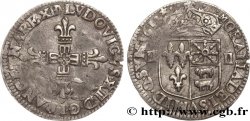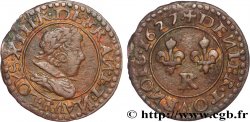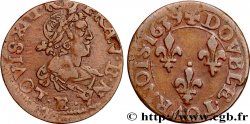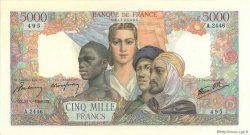fme_412301 - LOUIS XIII Médaille pour la mort de Louis XIII le Juste
Not available.
Item sold on our e-shop (2021)
Price : 600.00 €
Item sold on our e-shop (2021)
Price : 600.00 €
Type : Médaille pour la mort de Louis XIII le Juste
Date: 1643
Mint name / Town : 75 - Paris
Metal : bronze
Diameter : 70 mm
Orientation dies : 12 h.
Engraver MOLART Michel (1641-1713)
Weight : 155 g.
Edge : lisse
Coments on the condition:
Magnifique portrait avec un revers un peu plus usé avec quelques traces de manipulation. Sinon agréable patine brune
Obverse
Obverse legend : LVDOVICUS. XIII. FR. ET. NAV. REX..
Obverse description : Buste à l’antique de Louis XIII avec la léonté sur l’épaule.
Reverse
Reverse legend : LVDOVICO IVSTO PARENTI OPTIME MERITO // ORBIIT 14 MAII / 1643.
Reverse description : Louis XIII assis, vêtue à l'antique, tenant un bouclier fleurdelisé et un sceptre, couronné par la Justice.
Commentary
Médaille avec le même portrait et probablement de la même série que la médaille fme_412168 avec le Val de Grace au revers (signé MOLART Michel - 1641-1713). Cet exemplaire n’est signé que d’un R à gauche de l’exergue.
Après la mort du cardinal, en décembre 1642, le roi décide de se réconcilier avec certains des anciens conspirateurs comme son demi-frère, César de Vendôme et ses fils, le duc de Mercœur et le duc de Beaufort. Toutefois, il poursuit la même politique. Il fait entrer au conseil d'État un des proches collaborateurs de Richelieu, le Cardinal Mazarin qui devient vite premier ministre de fait, (le Roi n'a pas nommé de premier ministre, mais au bout de quelques mois, lorsque le secrétaire d'État à la guerre, Sublet de Noyers démissionne, le roi nomme pour le remplacer un des protégés de Mazarin, Michel Le Tellier).
Après six semaines de terribles coliques et vomissements, Louis XIII meurt le 14 mai 1643, soit 33 ans jour pour jour après son père Henri IV (assassiné le 14 mai 1610), à 41 ans, des conséquences d'un mal aujourd'hui identifié comme la maladie de Crohn. Il est toutefois probable que cette maladie chronique n'ait fait que l'affaiblir et que le coup de grâce lui ait été donné par son médecin, Bouvard, qui laisse le bilan de trente-quatre saignées, mille deux cents lavements et deux cent cinquante purges pratiqués sur le roi dans les deux dernières années de sa vie. Son corps est porté à la basilique Saint-Denis sans aucune cérémonie, selon son propre désir pour ne pas accabler son peuple d'une dépense excessive et inutile. Juste avant de mourir, Louis XIII rédige un testament visant à limiter les prérogatives de sa femme, la nouvelle Régente. Anne d'Autriche n'en tient pas compte et le fait casser dès qu'elle en a connaissance.
Medal with the same portrait and probably from the same series as the medal fme_412168 with the Val de Grace on the reverse (signed MOLART Michel - 1641-1713). This example is signed only with an R to the left of the exergue.
After the cardinal's death in December 1642, the king decided to reconcile with some of the former conspirators such as his half-brother, César de Vendôme and his sons, the Duke of Mercœur and the Duke of Beaufort.. However, it continues the same policy. He brought one of Richelieu's close collaborators, Cardinal Mazarin, into the Council of State, who quickly became de facto Prime Minister (the King had not appointed a Prime Minister, but after a few months, when the Secretary of State for War, Sublet de Noyers, resigned, the King appointed one of Mazarin's protégés, Michel Le Tellier, to replace him)..
After six weeks of terrible colic and vomiting, Louis XIII died on May 14, 1643, 33 years to the day after his father Henri IV (assassinated on May 14, 1610), at the age of 41, from the consequences of an illness now identified as Crohn's disease.. It is likely, however, that this chronic illness only weakened him and that the final blow was given by his doctor, Bouvard, who left a record of thirty-four bloodlettings, one thousand two hundred enemas and two hundred and fifty purges carried out on the king in the last two years of his life.. His body was taken to the Basilica of Saint-Denis without any ceremony, according to his own wish so as not to burden his people with excessive and unnecessary expense.. Just before his death, Louis XIII drew up a will aimed at limiting the prerogatives of his wife, the new Regent. Anne of Austria ignored this and had it broken as soon as she became aware of it.
Après la mort du cardinal, en décembre 1642, le roi décide de se réconcilier avec certains des anciens conspirateurs comme son demi-frère, César de Vendôme et ses fils, le duc de Mercœur et le duc de Beaufort. Toutefois, il poursuit la même politique. Il fait entrer au conseil d'État un des proches collaborateurs de Richelieu, le Cardinal Mazarin qui devient vite premier ministre de fait, (le Roi n'a pas nommé de premier ministre, mais au bout de quelques mois, lorsque le secrétaire d'État à la guerre, Sublet de Noyers démissionne, le roi nomme pour le remplacer un des protégés de Mazarin, Michel Le Tellier).
Après six semaines de terribles coliques et vomissements, Louis XIII meurt le 14 mai 1643, soit 33 ans jour pour jour après son père Henri IV (assassiné le 14 mai 1610), à 41 ans, des conséquences d'un mal aujourd'hui identifié comme la maladie de Crohn. Il est toutefois probable que cette maladie chronique n'ait fait que l'affaiblir et que le coup de grâce lui ait été donné par son médecin, Bouvard, qui laisse le bilan de trente-quatre saignées, mille deux cents lavements et deux cent cinquante purges pratiqués sur le roi dans les deux dernières années de sa vie. Son corps est porté à la basilique Saint-Denis sans aucune cérémonie, selon son propre désir pour ne pas accabler son peuple d'une dépense excessive et inutile. Juste avant de mourir, Louis XIII rédige un testament visant à limiter les prérogatives de sa femme, la nouvelle Régente. Anne d'Autriche n'en tient pas compte et le fait casser dès qu'elle en a connaissance.
Medal with the same portrait and probably from the same series as the medal fme_412168 with the Val de Grace on the reverse (signed MOLART Michel - 1641-1713). This example is signed only with an R to the left of the exergue.
After the cardinal's death in December 1642, the king decided to reconcile with some of the former conspirators such as his half-brother, César de Vendôme and his sons, the Duke of Mercœur and the Duke of Beaufort.. However, it continues the same policy. He brought one of Richelieu's close collaborators, Cardinal Mazarin, into the Council of State, who quickly became de facto Prime Minister (the King had not appointed a Prime Minister, but after a few months, when the Secretary of State for War, Sublet de Noyers, resigned, the King appointed one of Mazarin's protégés, Michel Le Tellier, to replace him)..
After six weeks of terrible colic and vomiting, Louis XIII died on May 14, 1643, 33 years to the day after his father Henri IV (assassinated on May 14, 1610), at the age of 41, from the consequences of an illness now identified as Crohn's disease.. It is likely, however, that this chronic illness only weakened him and that the final blow was given by his doctor, Bouvard, who left a record of thirty-four bloodlettings, one thousand two hundred enemas and two hundred and fifty purges carried out on the king in the last two years of his life.. His body was taken to the Basilica of Saint-Denis without any ceremony, according to his own wish so as not to burden his people with excessive and unnecessary expense.. Just before his death, Louis XIII drew up a will aimed at limiting the prerogatives of his wife, the new Regent. Anne of Austria ignored this and had it broken as soon as she became aware of it.







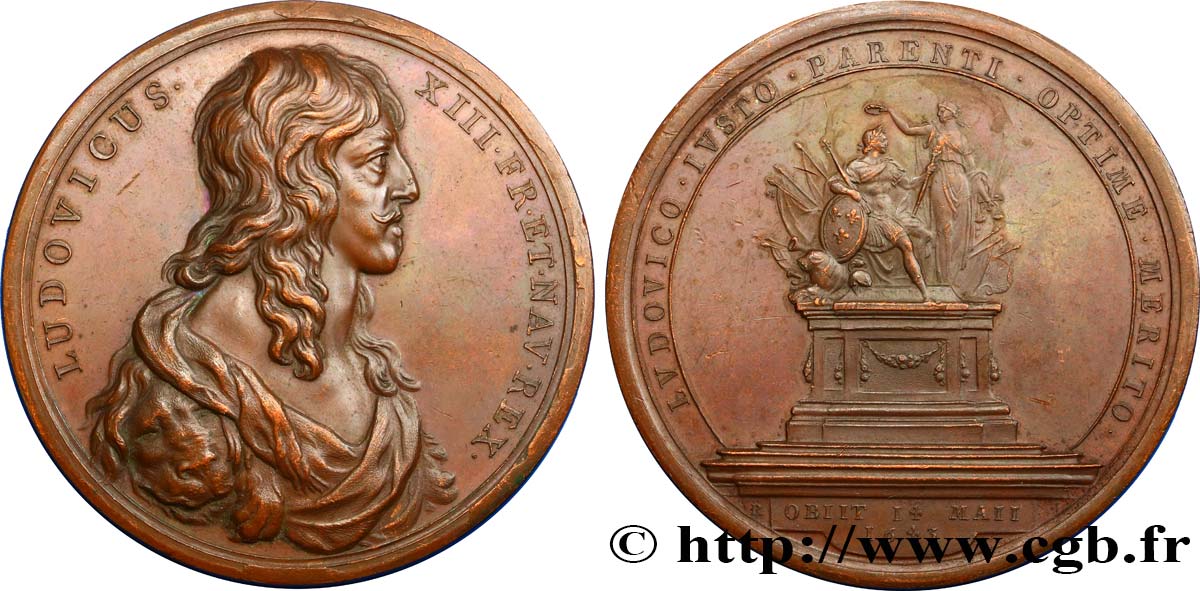
 Report a mistake
Report a mistake Print the page
Print the page Share my selection
Share my selection Ask a question
Ask a question Consign / sell
Consign / sell
 Full data
Full data

